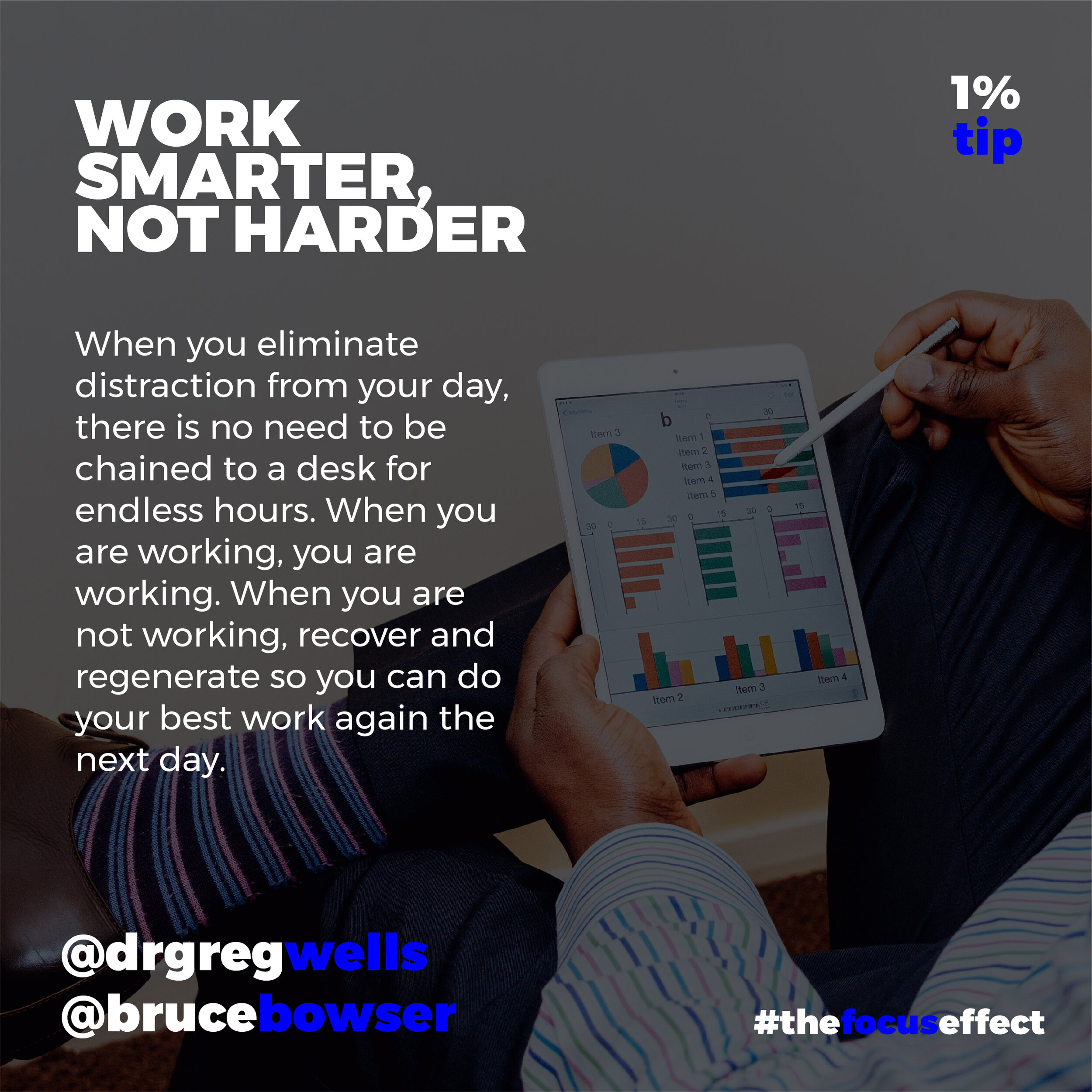Welcome to Work Optimization!
KEY POINTS:
1. Busyness in the workplace is the expectation that employees put in at least 8 hours of work each day - even if those 8 hours are distracted and unproductive.
2. Busyness in life is the expectation that we need to be “busy” to have a good life. The opposite is true. Let’s be intentional about how we spend our time not compulsive.
3. Work Mastery is learning how to use focus to become more productive and efficient in your workday, allowing you to become more present in your life outside of work.
4. In the coming module, you will learn how to work smarter, not harder or longer.
5. While this module is called Work Mastery, the strategies outlined are not limited to a job or career. This applies to any sort of work - whether it’s focusing on a passion, in school, or any sort of project that requires your deep focus.
“The performer who focuses the best wins the most.”
Welcome to Work Mastery!
There is the long-standing belief that a productive workday must last, at the very least, 8 hours. The concept of the 8-hour workday started with the Industrial Revolution. Ford Motor Company advanced the idea in 1914, when the company scaled back its 48-hour work week to curb accidents.
While there is plenty of research about why certain work structures were put into place in terms of processes, there is a lack of information about why the 8-hour workday still makes sense today. We have all learned to use it as a guideline in our businesses for decades, but no one understands exactly why.
Because we’ve been doing this for so long, 8 hours has become the minimally acceptable measure of a workday. If you hold a salaried management position and work 40 hours per week, you are meeting the bare minimum expectations. The unspoken expectation is you should be the first one in the office every morning and the last one to leave every night. Many business leaders still firmly hold the belief that if they worked ‘x’ amount of hours per week when they began their careers, then everyone should suffer this same fate. However, working longer does not always mean working better.
Many of us may be working 60 - 70 hours per week, but we need to be careful to not use time as a measurement of performance. Investing more time does not always equate to increased productivity; it may just have you waking up earlier and getting home later.
This is not to say that we shouldn’t invest a lot of time into our work, as I am a fan of hard work and there are certainly times in our careers when extra demands require extra time, but it is not sustainable long term if we have any hope of living a balanced life. Many leaders of the newest and fastest-growing companies are far more focused on working smarter, not harder or longer. Balance and lifestyle have become important hallmarks of these companies.
This is where the focus effect comes into play.
When you eliminate distraction from your day, there is no need to be chained to a desk for endless hours. We have seen many examples of successful companies that have implemented 5, 6, and 7-hour workdays, with flexible hours and have shown far more daily productivity than the traditional 8-hour workday. Heck, some companies would be happy to go from 10 to 12-hour workdays down to 8.
Distractions must be set aside during on-task time. When you are working, you are working. When you are not working, you are recovering and regenerating so you can do your best work again the next day.
When you give your tasks your undivided attention, you are able to produce higher quality work in less time. There is no logic to sitting at a desk for a designated amount of time if the work you are completing is not the best representation of your abilities. The key to success is not a longer day with more hours - it is a day with focus.
So that’s the goal of this module - to give you the information and tools you need to work better, not harder. When you apply those skills in the workplace (or in any other area of life), you can begin to make changes that will improve every aspect of your life.
Listen to this podcast episode with Dr. Lisa Belanger on working smarter, not harder.
The information and advice provided in this program is intended to assist you with improving your performance, as well as your general health. It is not intended and should not be used in place of advice from your own physician or for treatment or diagnosis of any specific health issue. By participating in this program you acknowledge that undertaking any new health, diet and/or exercise regime involves certain inherent risks, that you assume such risks, and that you release Wells Performance Inc. from any responsibility or claim relating to such participation.


